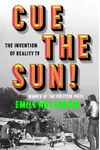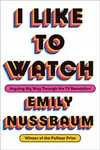Picture a critic who turned TV-watching into an art form—meet Emily Nussbaum! This Pulitzer Prize-winning essayist didn’t just review shows; she revolutionized how we think about television, proving it’s more than 'chewing gum for the eyes.' With her sharp wit and fearless takes, Nussbaum invites us to see TV as a vibrant cultural force that shapes who we are.
Born in 1966, Nussbaum’s journey from literature scholar to TV critic is a story of passion and pivot, sparked by a love for 'Buffy the Vampire Slayer.' Her work, from creating the iconic Approval Matrix to penning thought-provoking essays, challenges snobby cultural hierarchies and celebrates TV’s emotional depth.
The Making of Emily Nussbaum
Raised in Scarsdale, New York, Emily Nussbaum grew up in a household where TV was both a guilty pleasure and a cultural staple. The daughter of Bernard Nussbaum, former White House Counsel to President Bill Clinton, she pursued a path in academia, earning a bachelor’s from Oberlin College and a master’s in poetry from NYU. But while working toward a PhD in literature, a new obsession took hold: 'Buffy the Vampire Slayer.' This cult classic ignited her love for TV, leading her to post reviews on Television Without Pity and trade academia for journalism.
Nussbaum honed her craft at outlets like Lingua Franca and Nerve, eventually landing at New York magazine. There, she created the 'Approval Matrix,' a playful chart ranking cultural moments from highbrow to lowbrow. Her knack for blending humor with insight caught the eye of The New Yorker, where she became the television critic in 2011, succeeding Nancy Franklin.
Emily Nussbaum’s Unforgettable Works
Nussbaum’s writing is a masterclass in blending sharp analysis with infectious enthusiasm. Her debut essay collection, 'I Like to Watch: Arguing My Way Through the TV Revolution' (2019), is a love letter to television’s golden age. From defending 'Sex and the City' as a groundbreaking comedy to dissecting the #MeToo era’s impact on art, Nussbaum’s essays explore how TV reflects race, gender, and power. Her prose is witty yet profound, making complex ideas feel like a chat with a brilliant friend.
In 2024, she released 'Cue the Sun!: The Invention of Reality TV,' a cultural history that traces reality TV from 'Candid Camera' to 'The Apprentice.' With a storyteller’s flair, Nussbaum unpacks the genre’s creativity and ethical pitfalls, including its role in shaping figures like Donald Trump. Her New Yorker columns, which earned her a 2014 National Magazine Award and a 2016 Pulitzer Prize for Criticism, tackle everything from 'Mad Men' to 'Broad City,' always with an eye on social currents.
What sets Nussbaum apart is her refusal to bow to 'prestige TV' snobbery. She champions shows like 'Jane the Virgin' for their warmth and complexity, arguing that joyful, 'feminine' stories deserve as much respect as gritty dramas. Her feminist lens and conversational style make her a trailblazer in a field once dismissive of TV as art.
Why Emily Nussbaum Matters
Emily Nussbaum didn’t just elevate TV criticism; she redefined it. By treating television as a serious art form, she challenged decades of cultural bias that dismissed it as junk. Her work has inspired a generation of critics and viewers to engage with TV more thoughtfully, sparking conversations about representation and power. Nussbaum’s Pulitzer win cemented her as a leading voice, proving that smart, accessible criticism can change how we see the world.
Her influence extends beyond the page. On social media, with nearly 300,000 Twitter followers, she debates TV with fans, making criticism a lively, inclusive dialogue. Nussbaum’s legacy is a reminder that what we watch shapes how we think—and that every show, from sitcoms to reality TV, deserves a closer look.
- Born: February 20, 1966
- Key Works: 'I Like to Watch,' 'Cue the Sun!'
- Awards: 2014 National Magazine Award, 2016 Pulitzer Prize for Criticism
- Fun Fact: She lives in Brooklyn with her husband, journalist Clive Thompson, and their two kids.
Ready to see TV through Nussbaum’s eyes? Grab 'I Like to Watch' and dive into her witty, game-changing world of criticism!

